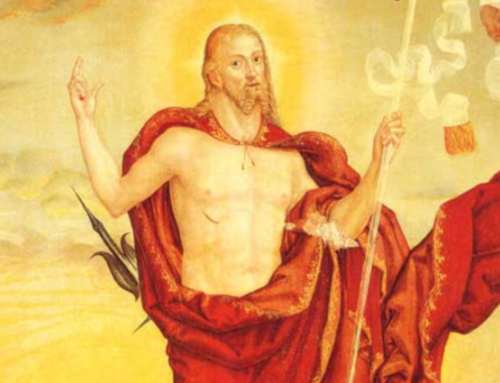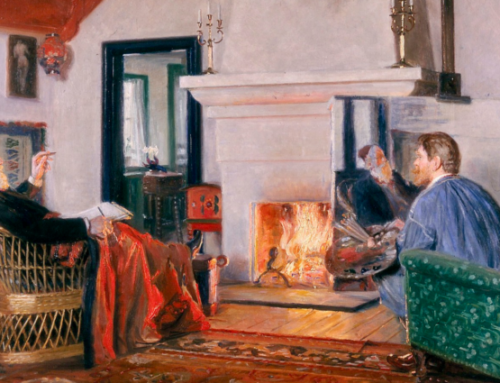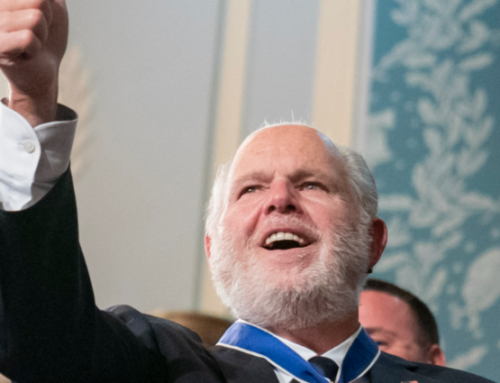 I recently reviewed Paul Gottfried’s Leo Strauss and the Conservative Movement in America for the University Bookman. Paul responds to my review here. Note that in addition to Paul’s book being available as an affordable paperback, the Kindle edition is now going for just $12.49—if you’re interested in this topic, be sure to read it for yourself.
I recently reviewed Paul Gottfried’s Leo Strauss and the Conservative Movement in America for the University Bookman. Paul responds to my review here. Note that in addition to Paul’s book being available as an affordable paperback, the Kindle edition is now going for just $12.49—if you’re interested in this topic, be sure to read it for yourself.
In the review I say that whether or not Strauss was in some sense a “conservative” is not the most interesting thing about him or the debate over his work. Gottfried may be correct that Strauss is better understood—if he needs to be situated in the context of late 20th century politics at all—as a Cold War liberal. The deficiency with that approach, however, is that it fails to account for why Strauss and his disciples are more often seen to associate with the conservative movement than with the leading figures and institutions of liberalism. Strauss and Straussians have been a presence in National Review since the 1960s. They have never had a similar representation in the New Republic, let alone The Nation.
Paul points to the importance of Strauss’s critique of relativism to explain the affinity that conservatives, especially conservative Catholics, have felt for him and his disciples. He also, however, calls attention to the Strauss circle’s apparent preference for Democratic presidential candidates in the 1950s and 1960s as evidence of a left-leaning disposition. In the Bookman, I challenge the idea that presidential voting counts for much—I cite the preference of Murray Rothbard and Peter Viereck, two other ambiguously conservative or right-leaning figures, for Adlai Stevenson over Dwight Eisenhower as an indicator of how voting is not always a sure sign of ideological alignment. I chose those figures because they happened to agree with Strauss (according to Stephen Smith’s account of Strauss’s voting) in the elections of the 1950s and because they, like Strauss, are not easy to pigeonhole. The point can be expanded, however: Russell Kirk, a conservative’s conservative, liked Eugene McCarthy as much as Barry Goldwater, and James Burnham—an important influence on Gottfried’s fellow paleoconservative Sam Francis—strongly preferred liberal Republican Nelson Rockefeller over Goldwater.
The “relativism” question is far more important than presidential voting, and taken together with personal and institutional associations creates a much stronger case for placing Strauss among conservatives than among liberals like Louis Hartz or A.M. Schlesinger. National Review’s William F. Buckley Jr. and Willmoore Kendall considered Strauss a comrade, as did Russell Kirk—though he came to have a more negative view of Strauss’s disciples after the 1980s.
This is worth stating explicitly because less historically informed commentators than Gottfried—who touches on such associations just briefly—may think there’s some mystery as to how latter-day Straussians came to occupy a prominent place in the conservative movement. The simple answer is: they inherited it, both from Strauss himself and from Harry Jaffa, who is ideologically idiosyncratic but has been influential in right-wing Republican and NR circles since the early 1960s.
What has to be noticed is that conservatism shifted its priorities over the course of some 30 years. In the 1950s and 1960s, the particularistic elements on the right and the universalistic elements on the right were not at war with one another, and to the extent that there was tension between them, that tension was resolved by the most influential conservative thinkers in favor of universalism. Richard Weaver, for example, balanced a Southern identity with Platonic philosophy, but when he came to consider the merits of Edmund Burke (a particularist) and Abraham Lincoln (a universalist), he decided for Lincoln. Strauss, of course, also placed the universal above the particular, while other conservatives such as Peter Stanlis resolved the conflict by re-interpreting Burke as a natural-law thinker. (Kirk followed Stanlis in this regard.) There were certainly strong particularistic or historicist tendencies in many early Cold War conservatives, but universalism was hardly a foreign element—if anything, it was predominant in the conservative movement’s first decades.
In the 1980s the synthesis broke down, in part for personal reasons rather than philosophical ones. The Southern literary scholar M.E. Bradford, with a strong particularist streak (and a strongly critical view of Lincoln), was denied an appointment as chairman of the National Endowment for the Humanities by younger neoconservatives and political operatives who objected to his views and feared he would embarrass Reagan. The struggle over the NEH began to draw the battle lines of the next 20-odd years: universalists now hardened their anti-particularism, and strong particularists began to reject all but the faintest of universalisms. This is where Paul Gottfried and the movement he christened “paleoconservatism” come in.
Very roughly speaking, one might say that postwar conservatism in the ’50s and ’60s was a 60-40 mix of universalism and particularism; after the 1980s, movement conservatism was an 80-20 mix of universalism to particularism, with the neoconservative component of the movement being 90 percent universalist, while the paleoconservatives who lost the right’s civil war were an 80-20 mix of particularism to universalism. The changing ratios were not just driven by philosophical and personal clashes; the upheavals of the Nixon years and the rise of Southern and Christian populisms on the right were equally important. Indeed, one way to understand the paleo-neo wars of the 1990s is as a struggle to decide whether a universalistic Christian conservatism (including Christian Zionism) or a particularistic ethno-nationalist (specifically, Southern and white ethnic) conservatism would prevail. The GOP’s emerging base of voters was at once Southern and Christian, of course, but which identity would the ideological publicists openly promote?
At every level, the univeralists prevailed in the conservative movement. In politics, the right-wing message since the 1990s has been universalistic with an unstated but unmissable ethno-particularist undertone. The paleos of the ’90s themselves ran into trouble among their own ranks over the ratio of particularism to universalism. Old-guard conservatives like Russell Kirk, who hated the militant universalism of the neoconservatives, nevertheless were not altogether comfortable with the sometimes extreme particularism of some of the paleos. (Gottfried relates an instance of this in his memoir Encounters, in which he, Russell Kirk, the libertarian Murray Rothbard, and the paleo Sam Francis met to discuss a Pat Buchanan campaign for president.)
The place of Strauss and the Straussians in this story is rather complicated. Jaffa is a leading exponent of universalism—he was an old sparring partner of Bradford’s, though Jaffa did not oppose his NEH nomination—and Jaffa’s “West Coast Straussian” students are fixtures of movement conservatism today, through such organs as the Claremont Institute and some of the faculty and administration of Hillsdale College. Some of the “East Coast Straussians” are even more influential: Weekly Standard editor William Kristol was a student of Harvey Mansfield’s at Harvard, and William’s father Irving was a deep admirer of Strauss. Gottfried does not spend many words differentiating East Coast and West Coast varieties of Straussian (or other permutations—and there are a few) because both have exemplars with strong institutional ties to neoconservatism and the conservative movement. Oversimplifying Gottfried’s position just a little, one can say that with a few unimportant exceptions, Strauss and the Straussians are antithetical to non-neoconservatives. Their growing presence in the conservative movement has been a sign of that movement’s transformation into something that Gottfried considers basically left-wing, in large part because of its anti-historical hyper-universalism.
What I find most interesting about this is that the history as it has unfolded since the 1980s actually expresses a philosophical tension that Strauss had identified in the 1950s—it’s hard not to see a parallel between the right’s incoherence and Strauss’s critique of figures like Edmund Burke. The right’s civil wars do indeed revolve around “natural right and history.” The shame of it is that polemics and factional animosity have obscured the more interesting philosophical problems and how their solutions might be sought. An important discussion has been played out like a cartoon. But it need not continue to do so, if only one looks afresh at the principal ideas rather than their polemical caricatures.
First, Strauss’s “natural right” is not simply “natural law” or “natural rights” or “human rights.” Strauss is a universalist, in that he thinks some questions and problems are always present to humanity and in political life. But that basic level of universalism does not lead directly to wars to impose liberal democracy on the Islamic world. It’s not obvious that Strauss’s degree of universalism is necessarily any more far-reaching than many a Catholic particularist’s. (Catholicism is of course universal in its self-understanding, so a Catholic particularist is a universalist to some degree on account of his faith.) In the work of conservatives like Willmoore Kendall and Patrick Deneen one can see Strauss, Catholicism, and a quasi-particularist critique of American exceptionalism coming together quite organically. That so many of Strauss’s other professed admirers are full-throated liberal-democratic imperialists doesn’t mean that the exceptions can be ignored—again, there’s a parallel to Strauss’s own methodology, in which exceptions are precisely something to be noted.
Second, if “natural right” is not necessarily “neoconservatism,” it’s also the case that “history” need not mean crude ethno-nationalism. Traditionalist conservatives like Claes Ryn and some of the paleoconservatives have begun to develop an incarnational historicism—which in fact has some parallels in the thought of Eric Voegelin and even, surprising as it may sound, Frank Meyer—that integrates the particular and universal in such a way as to do violence to neither. Strauss, of course, would not be satisfied; the project may sound too much like German Idealism revisited, with too much of a Christian overtone to be comfortable for someone who takes Judaism seriously. Nevertheless, a philosophically sophisticated conservative historicism is at least as incompatible with vulgar right-wing identity politics as it is with the universalist pretensions of American exceptionalism.
One thing even the most historicist right-winger can learn or re-learn from Strauss is the ambiguous character of the American polity. Americans have always had a penchant for universalism, which Strauss recognized. That universalism was not synonymous with what he had in mind by natural right, though it wasn’t diametrically opposed to it, either. When paleos have tended to damn universalism root and branch—to speak as if they can’t understand why anyone would bother to read the Declaration of Independence unless they’ve been brainwashed by Harry Jaffa—they have cut themselves off from their countrymen and guaranteed the success of even the most puerile universalism. The problem is not a failure to cheerlead for Lockean ideology, but a refusal to recognize that Americans have always been more complicated than a simple hearth-and-home conservatism—or in degraded terms, blood-and-soil conservatism—can admit.
In short, the right’s factional battles over the last 30 years are one thing, the deeper issues that get touched on but distorted by those battles are another. An examination of Strauss is most valuable when it focuses on the latter rather than the former. That’s not a big knock on Paul’s book, which has a lot to do in under 200 pages and does raise plenty of interesting questions. But there’s much more to be said, and it can only be said once the sectarian history is put in perspective.
Republished with gracious permission of The American Conservative.
The Imaginative Conservative applies the principle of appreciation to the discussion of culture and politics—we approach dialogue with magnanimity rather than with mere civility. Will you help us remain a refreshing oasis in the increasingly contentious arena of modern discourse? Please consider donating now.







A truly enjoyable history lesson. As a student of Voegelin’s I’m rather put off by these Straussians, though I find certain individuals among them gifted writers and thinkers, albeit wrong. But, that’s why Dr. Voegelin taught, we search for both ‘truth’ and ‘reality.’ Could you expand on the definition of “particularism” and “universalism,” in the context you’re using those words?
McCarthy’s assertion that “Strauss and Straussians have been a presence in National Review since the 1960s. They have never had a similar representation in the New Republic, let alone The Nation” reveals too much. How so? Permit me to answer with a question. Has conservatism been successful since the 1960s? Of course not, due in large part because leading periodicals and institutions have been overtaken (infiltrated is a better word) by Strausssians. Their calling card is equality, the lynchpin of Straussians’ ostensible universalism and big government’s clarion call to (mis)manage the economy and society. Anyone who doubts the influence of Straussians in gutting conservatism, domestic and foreign policies, is either on the payroll of the Straussians or woefully misinformed. One thing is certain, Dr. Gottfried is neither.